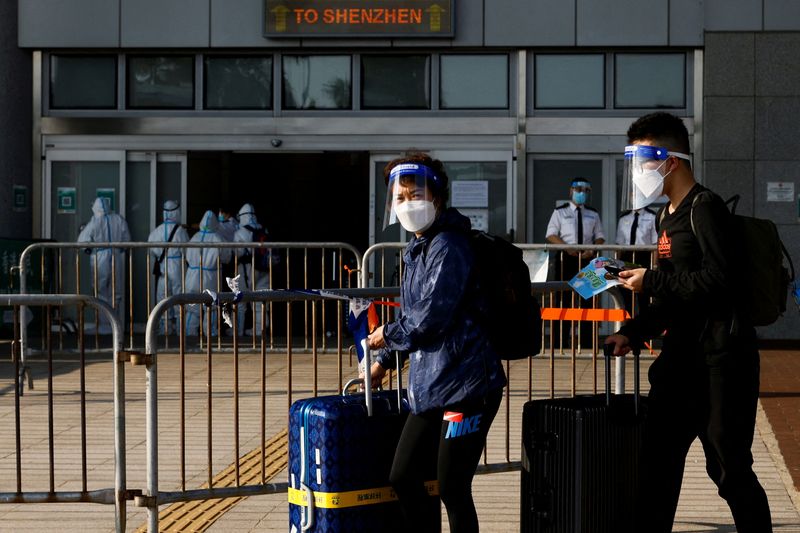HONG KONG (Reuters) -Hong Kong leader Carrie Lam said on Thursday she would review COVID restrictions in the coming days, as she understands people are increasingly impatient with rules that have isolated the international financial centre and hurt business.
Restrictions, including a ban on flights from nine countries such as Britain and the United States, a quarantine of up to 14 days for people arriving in Hong Kong, a ban on face-to-face classes and the closings of gyms and most public venues, have frustrated many residents in the city of 7.4 million.
Speaking at a regular COVID-19 media briefing, Lam said she would provide an update around March 20-21 rather than wait for the restrictions to expire on April 20.
"I have a very good feel that some of our financial institutions are losing patience about this sort of isolation status of Hong Kong. And Hong Kong is an international financial centre and nobody attaches as much importance as myself to Hong Kong as an international financial centre," Lam said.
The review would include social distancing measures as well as an update on border restrictions and a proposal for mass testing, she added.
Health authorities reported 21,650 new infections on Thursday and 202 deaths, taking total cases to around 1 million and deaths to more than 5,000, most of them in the past three weeks.
Daily cases have been hovering around 20,000-30,000 in recent days, although some experts say the real figure is significantly higher given that many people test positive at home and do not report their result to the government.
About half of the city's residents have likely already been infected, a study from the University of Hong Kong estimated this week.
Hong Kong is clinging to a "zero-COVD" strategy that aims to curb all outbreaks despite spiralling cases that have swept through care homes and overwhelmed medical and mortuary facilities.
The policy mirrors that of mainland China, which is also facing a huge challenge as a jump in cases restricts the movement of millions of people and affects some of the country's industrial hubs.
The situation has triggered an exodus of people from the city, with a net outflow of more than 45,000 this month after at least 71,000 left in February. That compares with a net outflow of nearly 17,000 in December before the fifth wave hit.
